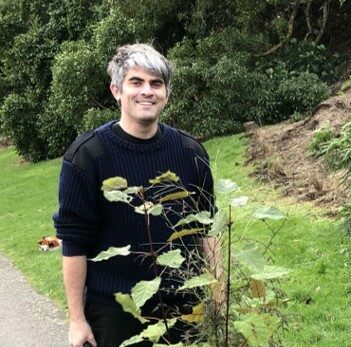




Getting Local Government to Work With Communities
What does it really take for councils and communities to work well together? Drawing on his experience as both a former mayor and a lifelong community advocate, Inspiring Communities Director Aaron Hawkins shares honest reflections on the challenges, opportunities, and mindset shifts needed to build stronger relationships across the system - especially as we head toward local elections.
Reflections from both sides of the council table
Aaron Hawkins, Director at Inspiring Communities
First, a disclaimer.
Before I came to the Inspiring Communities kaupapa, I used to be a local politician. In the meetings I have sat in since, I get the overwhelming sense that this isn’t a popular calling in our sector.
Which is entirely understandable, because – like many people who end up sitting around your local council table – what motivated me to be there was the frustration of being on the other side.
I saw decisions being made about us, without us, and with a lack of regard for the long-term wellbeing of our people and planet.

Once I was on the inside, though, I found a much more hopeful situation. Council staff, and elected members, who understood what was missing and who wanted to do things differently.
Not all of them, by any means, but enough to make progress.
Because most importantly, I found that we had the tools available to us to rethink how we put community at the heart of the city’s wellbeing.
Some of it was about pūtea, and providing financial support to place-based groups with their boots on the ground. But sometimes it just takes a different attitude and a quick phone call.
Why were we holding meetings on the council’s draft budgets on the same night as an annual community dinner, then wondering why nobody showed up?
Why were we insisting that neighbourhoods follow a formal prescription for how they organised and supported each other?
When the weather hit the proverbial fan, how did we know who needed help, and how, and where?
Ultimately, the answer to all of these questions was found in a better mutual understanding between community and local government, at all levels.
Anna Parker and I had a great kōrero about this last week as part of the Community Building Block series, and in both our own stories and those on the call we got the same consistent message:
It’s all about relationships. Know who your local councilors are, add them to your mailing lists and invite them to events. Even if they don’t engage, you can’t give them the excuse that they don’t know who you are or what you’ve been up to.
They won’t all support new ways of working, but identify your allies in those that do. As much as anything else, they’ll be able to translate the language of local government for you (and it is another language).
This means you’re more likely to understand the opportunities that arise to insert a community view into key decision-making processes – even if it’s not being asked for!
It’s not just about politicians, either. It’s also important to know the relevant council staff, because that’s who writes the advice your elected reps receive.
This is not a one-off activity.
People come and go from politics, or the public service, but also from community organising. The thousand cups of tea are never done.
Our communities’ stories need to be told and told and told again, to ensure that they never get lost.
But ultimately, we need decision makers around the table who get it. No better time than now to think about whether that perspective is something you bring to your local council.
Nominations open for local elections on July 4th, closing at midday on August 1st.
